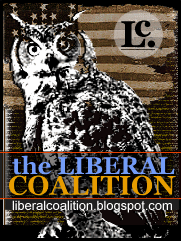If you choose to punch in the words "political correctness" into Google, you get back 344,000 sites (Politically Correct pulls in 736,000. Politically incorrect pulls in 377,000). That's a whole heap of sites. But what is "political correctness?"
Top of the list and second to the top of the list is
an article by Phillip Atkinson on how Political Correctness has ravaged Australia. Let's see what he has to say.
"
Political Correctness (PC) is the communal tyranny that erupted in the 1980s. It was a spontaneous declaration that particular ideas, expressions and behaviour, which were then legal, should be forbidden by law, and people who transgressed should be punished. It started with a few voices but grew in popularity until it became unwritten and written law within the community. With those who were publicly declared as being not politically correct becoming the object of persecution by the mob, if not prosecution by the state."
Oh my that doesn't sound very good, does it? But let's look at the ahistorical nature of this statement. It was a "
spontaneous declaration." Where did this declaration happen? It is unclear. When did it happen? The author is a bit more forthcoming on this issue. Apparently it appeared in the 1980s. Why did it happen? On this the author is initially silent; although the use of the word "spontaneous" suggests that it did not spring from any antecedents, but just appeared.
Mr. Atkinson does eventually suggest a source for this political correctness; the selfish baby boomers who hated and resented their parents.
"
The declared rational of this tyranny is to prevent people being offended; to compel everyone to avoid using words or behaviour that may upset homosexuals, women, none-whites, the crippled, the mentally impaired, the fat or the ugly. This reveals not only its absurdity but its inspiration. The set of values that are detested are those held by the previous generation (those who fought the Second World War ), which is why the terms niggers, coons, dagos, wogs, poofs, spastics and sheilas, have become heresy, for, in an act of infantile rebellion, their subject have become revered by the new generation. Political Correctness is merely the resentment of spoilt children directed against their parent's values."
So according to this particular author, it is
infantile to find the term nigger or coon offensive. I need hardly point out that people of color aren't even on stage for this discussion; it is, in Atkinson's mind, strictly a debate between two white generations, and, apparently, their opinions are the only one's that matter.
But perhaps I am being politically correct.
Among the other top ten sites at Google on Political Correctness are a speech by Charleton Heston, a story about the use of "People who are Blind" rather than "Blind People," quotes from Camille Pagalia (some of which are quite good), and a history of the term at the ultra republican Newsmax, claiming it came to us from Frankfort socialists by way of Chairman Mao (which, frankly, is quite a little voyage for an English language term to make).
There is one slightly
more scholarly treatment of the term at Wikpedia, but it gives short shrift to the theory that the term originated more as a perjorative against over-righteous liberals. "
Many leftists allege that the term "political correctness" started as a label jokingly used to describe one's over-commitment to various political causes. In the view of one conservative commentator, Bill Lind, however, the intellectual roots and attitudes associated with PC are many decades old and rooted in radical leftist movements. Also, in a linguistics mailing list, there was discussion of the term used--sometimes quite straight-facedly--in the early and middle 1970s."
We will be revisiting this theory of the origin of the term as we progress. This might make for a dull scholarly week, but I need a break from the same old thing, and I think it might be interesting to take a subject like this and really explore it.
Just so you know where I stand, I think that the use of the term "
political correctness" has done far more to silence and shut down the expression of liberal ideas than it has to silence conservative ideas. Obviously I haven't proved that yet, but I intend to.
So sit back and enjoy. Or actually you'd probably be better off going and watching some TV, since I might not post again until tomorrow or later on tonight.

